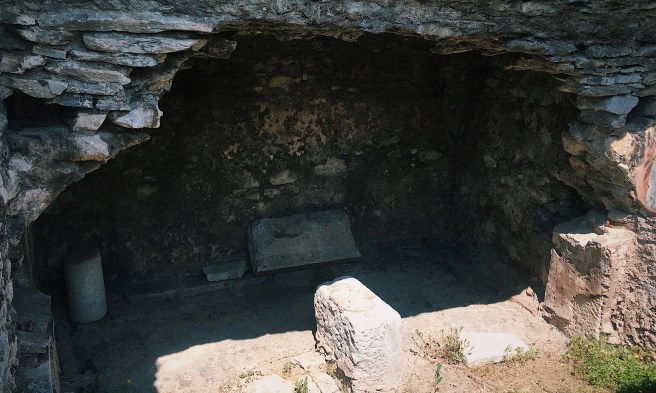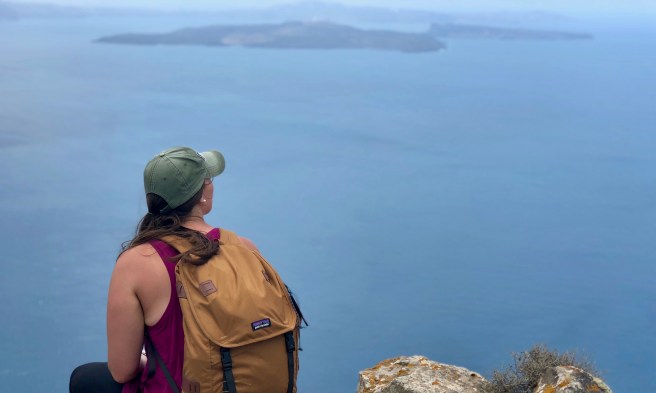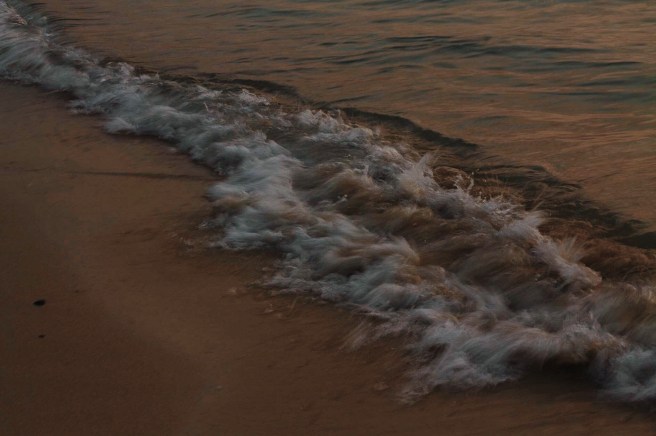
Tomorrow my alarm will ring at 4:00 a.m. If all goes right me and nearly 3,000 other athletes will start our journey to finish 70.3 miles of activity in one day.
I’m racing in my first Half Ironman. And to many of you, I may sound a tad crazy.
You wouldn’t necessarily be wrong. I’ve questioned my sanity often, especially considering the 5 a.m. wake ups, 4-hour bike rides, 10+ mile runs, missed social events, and many dollars I’ve spent over the last four months. So what would compel me to sign up to spend hours exercising?
I can boil my response down to one word: worship.
Being active has always been a sanctuary for me. It’s where me and God meet without distraction. It’s where He’s walked with me through some of my greatest victories and defeats. It’s where He’s reminded me that my identity isn’t in what I do or accomplishment. It’s where He’s taught me that suffering is a part of life and possible to endure when my sights are set on the right thing. It’s where He’s taught me humility. It’s where He’s rewired me to be for people even if they’re against me.
And for the last four months, it’s been the place where I’ve experienced Him most as a Father.
Our training times have been a sacred space. Though in motion, it’s like I’m cozied up at His feet. We get to talk for hours. I like to move through life fast, but I’m learning that it’s at this slower pace that His grace and truth sinks in and sticks.
Training is our tent of meeting where I’m drawn to worship.
“So, what is a successful race on Sunday?”
My Mama Sue poses the perfect questions with impeccable timing. I guess that’s bound to happen when you’ve prayed for wisdom since your early twenties. I sat for a moment before I answered. Then it came to me.
“Starting.”
And my start for tomorrow happened months ago.
It started with early bedtimes and early alarms.
It started with the anxious nights wishing I could already move my body for longer distances than ever before.
It started with figuring out how to clip and un-clip into my borrowed bike without falling over.
It started with learning how to drink and eat on a long ride without taking down the person next to me.
It started with whispers to be patient when I wanted to blast out the front door at an unsustainable pace to get a run done.
It started with not brushing off a swim because that’s the one sport where I have some confidence.
It started with long Saturdays training in cold, wind, rain and hail instead of sleeping in or going to brunch with friends.
It started with remembering to run my race, not the race of the person who just passed me.
It started with traveling with my gear and training before celebrating the weddings of some of my best friends.
It started with learning that sometimes rest is what I need more than checking off another day of hard work.
It started with a support system I don’t deserve—at home, at work, at church, at the gym.
It started with saying “I’m sorry” to these precious people when I gave in to my exhaustion and snapped.
Needless to say, this race started long before tomorrow morning.
A lot can go wrong in 70.3 miles.
A lot of people don’t cross the finish line. Cramps, flats, weather and dehydration can cause “DNF” to label the most well-prepared athletes. And I could be one of them. There are a lot of things you can’t control in endurance races.
But regardless of what happens tomorrow, I can say with confidence that I started. With worship as my “why” and starting as my measuring stick, this race is already won. There is great peace and victory in that.
I have nothing to prove, so tomorrow I’m going to worship. And together—me and Him—we’re going to do this thing.
“Therefore, since we are surrounded by such a great cloud of witnesses, let us throw off everything that hinders and the sin that so easily entangles. And let us run with perseverance the race marked out for us, fixing our eyes on Jesus, the pioneer and perfecter of faith.” -Hebrews 12:1-3








